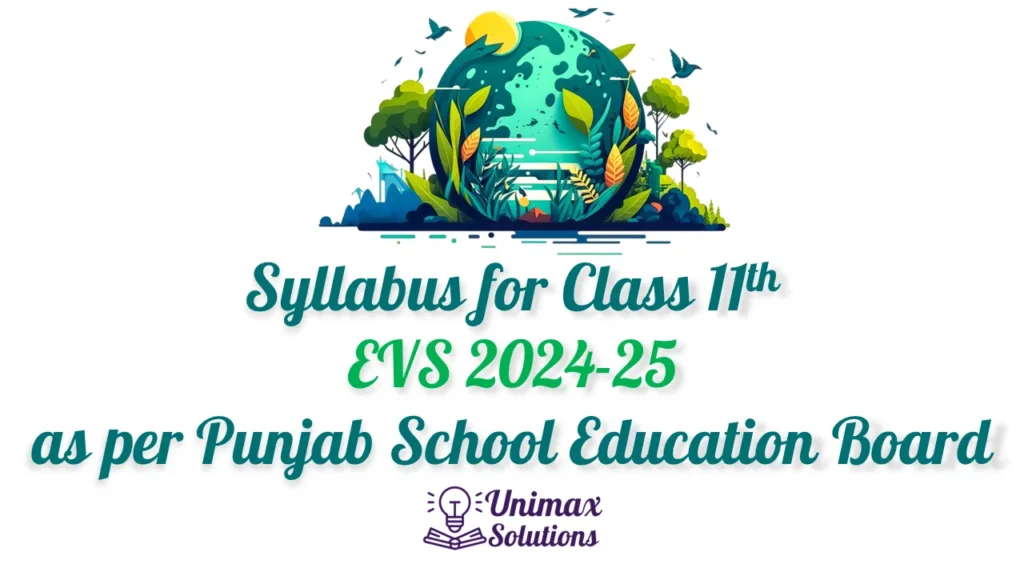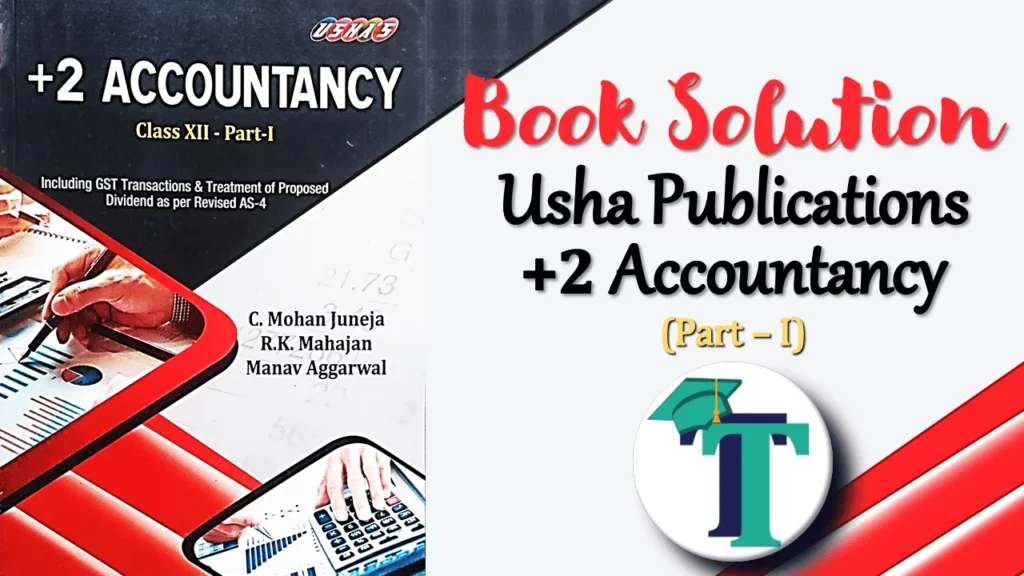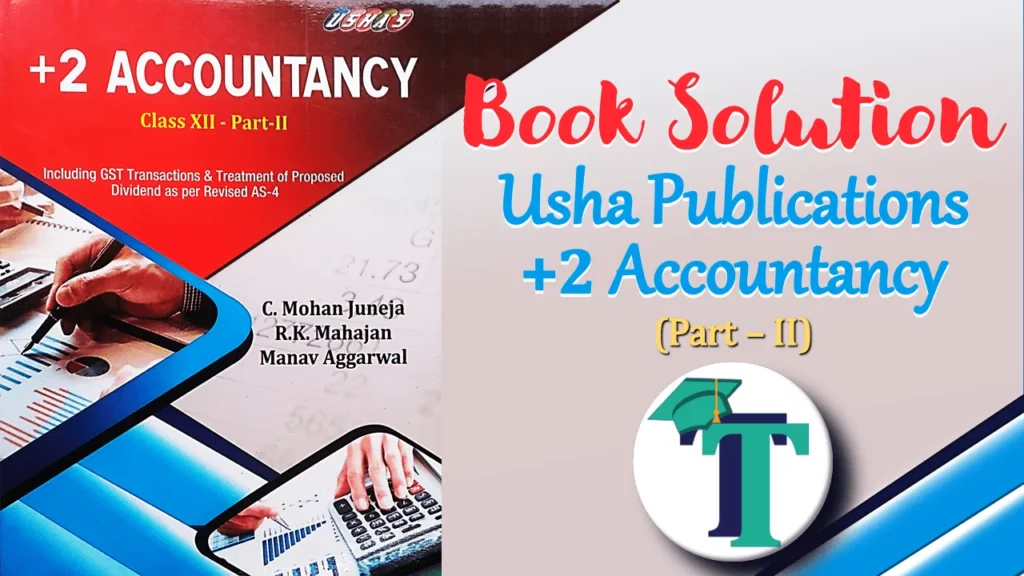
Advertisement
In this article, you can check out the Syllabus for Class 11 EVS – PSEB 2024-25 and you can also download the syllabus in the PDF Format.
Syllabus for Class 11 EVS – PSEB 2024-25
SYLLABUS
CLASS XI (2024-25)
ENVIRONMENT EDUCATION
Unit-I Man and Environment
- Environment
• Dimensions of Environment physical biological and social.
• Human beings as rational and social partner in environmental actions.
• Society and environment in India Indian traditions, customs and culture in past and present. - Population and Environment
• Demography, Causes of increase in population and its ill effects on environment, urbanization. - Impact of human activities on Environment
• Environmental problems of urban and rural areas.
• Natural resources and their depletion.
• Stress on civic amenities, supply of water and electricity, waste disposal, transport, health services.
• Vehicular emissions.
• Urbanization land use, housing migrating and floating population.
Unit-II Environment and Development
- Economic and Social Development
• Economic and social needs as basic considerations for development.
• Agriculture and industry at major sector of development.
• Social factors affecting development-poverty, affluence, education, employment, child marriage and child labour, human health HIV/AIDS, social culture and ethical values. - Impact of Liberalization and Globalization
• Impact of liberalization and globalization-agriculture and industries, dislocation of manpower and unemployment implications for social harmony. - Role of Society in Development and Environment
• Rule of society in development and environment public awareness through education, eco clubs, population education programmes and campaigns, public participation in decision making.
Unit-III Environmental Pollution and Global Issues
- Environmental Pollution
• Air water (Fresh and marine), soil pollution-sources and consequences.
• Noise and radiation pollution sources and consequences.
• Solid, liquid and gaseous pollution. - Pollution and Diseases
• Handling of hazardous material, process and management of hazardous wastes.
• Pollution related diseases.
• Strategies for reducing pollution and improving the environment - Global Issues and Improvement of Environment
• Ozone Layer depletion and its effects.
• Greenhouse effect, global warming, climate changes and their effects on human society, agriculture plants and animals - Disaster
• Disaster natural (earthquakes, droughts, floods, cyclones, landslides) and man made (technological and industrial), their impact on the environment, prevention, control and mitigation
Unit-IV Energy
- Energy Consumption
• Changing global pattern of energy consumption from ancient to modern times.
• Energy consumption as a measure of quality of life.
• Rising demand for energy gap between demand and supply (Indian context.) - Conventional Sources of Energy
• Conventional energy sources fossil and firewood, potential (India context) and limitations of each source, methods of harnessing energy and environment consequences of their use. - Non-conventional Source of Energy
• Non Conventional energy sources-type of non conventional sources (biomass, solar, wind, ocean, hydel, geothermal, nuclear), potential (Indian context) and limitations of each source, methods of harnessing and their environmental consequences, need to promote non-conventional energy sources. - Conservation of Energy
• Conservation of energy sources efficiency in production, transportation and utilization of energy.
• Future sources of energy-hydrogen, alcohol, fuel cells.
Unit V Safe work Environment and Occupational Hazards
- Safe Work Environment
• Safe work environment adequate light, ventilation, cleanliness, good housekeeping. - Safety Laws, Accidents and First- Aid
• Safety awareness management- safety precautions- home and work (laboratory, workshop, work site), safe handling of equipment and material.
• Occupational hazards physical, chemical, mechanical, electrical, biological, radiational and psychological.
• Accidents and major hazards in industries and occupations- fire, explosion, toxic release.
• First aid measures.
• Laws and regulations related to occupational health and safety.
- Drugs – ill Effects Part-l
• Importance of health, Drug addiction, symptoms (Material upload on website)
• Drugs of abuse and their health consequences, academic and occupational consequences, consequences for family, social, legal and criminal consequences.
• Prevention of Drug, Government initiatives, the narcotic drug and psychotropic substances act-1985, offences and penalties.
• Chapter 17 is added in the syllabus as a compulsory topic, Matter is available on the Board’s website www.pseb.ac.in
Syllabus for Class 11 EVS – PSEB 2024-25 – Download PDF
Download the PDF of the Syllabus for Class 11 EVS – PSEB 2024-25 For Free of cost.
Check out the Solution of Various Books of Accountancy for Class 12 For PSEB
Punjab School Education Board (PSEB) Solutions of Usha Publication.
If you’re a student enrolled in the Punjab School Education Board Class 12, it’s essential to explore a wide range of books to cover the syllabus thoroughly. While the prescribed textbooks are undoubtedly valuable, supplementing your studies with additional resources can enhance your understanding and knowledge. Consider checking out other books that align with the curriculum, offering different perspectives and insights on the subjects you’re studying. These supplementary materials can provide you with alternative explanations, practice questions, and examples that may aid in clarifying complex concepts. Moreover, exploring diverse sources can expose you to a variety of writing styles and viewpoints, fostering a broader understanding of the subjects. So, seize the opportunity to expand your learning by delving into other books that can complement your studies and contribute to your academic growth.
Advertisement


